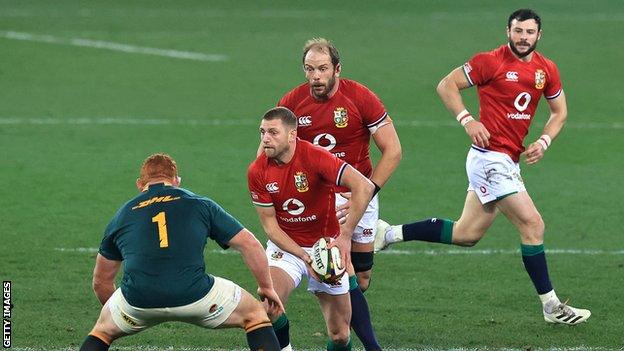
Given the perilous state of the British and Irish Lions tour of South Africa in mid-July, with Covid ravaging the home camp and more than a dozen visiting players and staff in isolation, it is a minor miracle that the series was played to a conclusion.
The administrators and players deserve enormous credit for getting the tour finished in such difficult circumstances. For all the many obstacles they continue to face, whether in a Covid world or not, it is clear the Lions remains incredibly important to both the British and Irish players - and their hosts.
But while the series was settled in the same way as 12 years ago, with a Morne Steyn penalty goal, that is where the similarities end. The 2009 edition was played in front of bumper crowds, with the Lions playing some thrilling ball-in-hand rugby and greatly enhancing the brand and concept in the process.
So after a 2021 series full of rancour off the pitch and underwhelming rugby on it, how will this tour be remembered, and where do the Lions go from here?
An opportunity missed?
While Lions fans will be unanimous in the belief that they could, perhaps should, have won the decider in Cape Town, a lingering regret will be the unimaginative style of rugby they exhibited across the Test matches.
When naming the squad in May, head coach Warren Gatland and his coaches insisted it was a group capable of playing in a number of ways, and wouldn't be reliant on trying to beat the Boks at their own game.
But the Lions played conservatively, with their much-vaunted back three seldom given a chance to run in space. The approach worked in the first Test, with the Lions taking advantage of an undercooked South Africa, but came unstuck in the second.
It was only a twist of fate in the third, with the brilliant Finn Russell coming on early for the injured Dan Biggar, that meant the Lions actually started to play some rugby. It left fans and pundits alike wondering what might have been.
Covid and bad luck played their part in all this.
Attack coach Gregor Townsend spent time in isolation. Russell was injured for a large part of the tour. Biggar and Farrell also had their injury concerns, and were never able to form a 10/12 partnership that could have helped stretch the suffocating Springbok defence. And unlike the super-human Alun Wyn Jones, the great Johnny Sexton wasn't quite able to convince Gatland he had one more tour in him.
But if he had his time again, would Gatland have selected the skilful and versatile Henry Slade of England, or the elusive Irishman Garry Ringrose, or the great Welshman Jonathan Davies? And would he have realised that it pays to be brave against the Boks?
In 2009 there was a real sense the Lions deserved more. It is hard to argue that this time around.
Erasmus antics sour the series
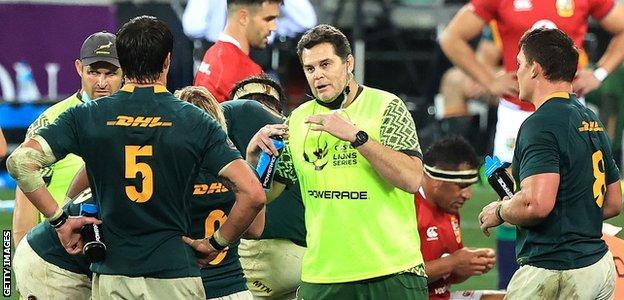
For the first few weeks of the tour, the messages coming out of South Africa from both camps were full of positivity, despite the adversity.
This all changed before, during and after the first Test.
The hosts believe the Lions started it all, as they raised concerns about the appointment of a South African television match official.
While there may have been an element of opportunism and cynicism in the messages coming out of the Lions camp, their main gripe was that there wasn't a contingency plan in place for when an official - in this case the New Zealander Brendon Pickerill - couldn't travel.
They insist at no point did they question Marius Jonker's integrity. And as former Lions team manager Donal Lenihan said on a similarly rancorous tour to Australia in 2001, there is no point arguing after a match.
But argue after the match the Springboks did, with director of rugby Rassie Erasmus first taking to social media to highlight certain incidents, before releasing an astonishing 62-minute video, detailing around 30 occasions when he felt his side were treated unfairly in the first Test.
There is nothing wrong with questioning and challenging officials in public. They are professionals and are used to being, and need to be, held to account.
But what Erasmus did was crossing the Rubicon, as not only did he quibble over some areas of the game that will be forever subjective and ambiguous, but he heavily questioned the integrity of the officials, implying his team, and captain Siya Kolisi, had been disrespected, with the officials actively showing bias against the Springboks.
It was an accusation Kolisi, sadly, was happy to perpetuate.
While the brilliantly successful Erasmus will be further feted by his country, this mental and emotional manipulation of officials is a dangerous and damaging precedent for the game. Can South Africa ever lose a Test match again in a fair manner? Or will their supporters forever be convinced any defeat from now on is because of biased and disrespectful officials?
| First Test: South Africa 17-22 Lions |
| Second Test: South Africa 27-9 Lions |
| Third Test: South Africa 19-16 Lions |
Who takes charge in 2025?
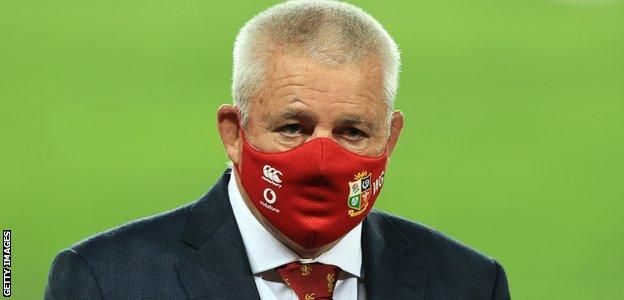
Gatland signs off from his third tour as head coach with a win, a draw and a loss - an impressive return.
Whatever happens next, he deserves to go down as a great Lions coach, the man who took charge of the only Test series win this century, and someone who through commitment and force of personality helped get this tour on the road, and keep it on the road, through unprecedented adversity.
But it is surely time for the Lions board to look to a new era. Apart from the one-off tenures of Sir Clive Woodward and Graham Henry, every single Lions tour since 1983 has been propped up by one of two men: Gatland and Sir Ian McGeechan.
The Lions can no longer rely on these individuals. If the four home unions, who lest we forget make up the Lions, are serious about supporting the concept, then a proper plan needs to be put in place about who takes charge going forward.
Should the Lions head coach be a neutral, someone who is detached from any of the four sides? Or does that individual need to be coaching at the sharp end of the international game? Did Gatland benefit from not being involved in the 2021 Six Nations, or did he suffer?
What about the assistant coaches? How do we avoid another situation whereby a host of first-choice candidates are unavailable? One idea is for each country to provide one assistant from their staff, chosen by the Lions head coach.
There is no shortage of candidates to lead in 2025: Andy Farrell and Gregor Townsend are both coaching at the highest level, and have experience on Lions coaching teams; Ronan O'Gara is making waves in the coaching world and by 2025 could be ready; Stuart Lancaster has deep knowledge of British and Irish leagues and players.
The Lions board, so low-profile during this whole process, should take their time. And the home unions, who refused to countenance a postponement to 2022, need to show they want the very best for the Lions, rather than it being an anachronistic hindrance - a familiar tale.
Similar conversations about the future of the Lions were taking place in New Zealand four years ago, especially after a humbling first-Test defeat and a difficult build-up and lack of preparation time. But that all changed in Wellington, as thousands of Lions fans danced in the rain following the thrilling second-Test victory.
Those explosions of joy were sadly lacking this time, on and off the field. If this unsatisfactory tour has taught us anything, it's that the Lions can never play without supporters again.
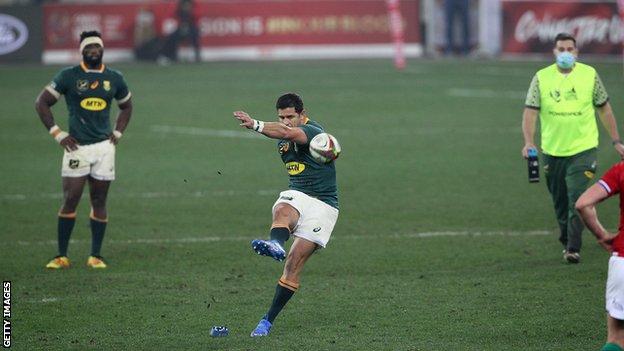


Source: BBC Rugby Union News
